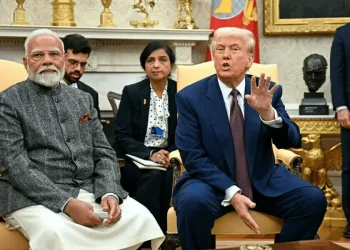KARACHI: Murtaza Ali, President of JazzCash, has proposed that digital remittances be exempted from wallet-receiving limits as higher transfer limits for remittances via digital wallets will not only to benefit Pakistani expats but also facilitate access for remote and low-income households, enabling them to engage more fully in the formal financial system.
JazzCash Chief said that this proposal aligns with ongoing efforts to enhance digital payment systems to increase the home remittances inflows to build the country’s foreign exchange reserves. By removing limit restrictions, more individuals can benefit from the convenience and security of digital transactions, ultimately contributing to economic growth and stability, he believed.
Remittances play a critical role in Pakistan’s economy, besides a lifeline for millions of households. During the first quarter of this fiscal year (FY24-25) Pakistan received record $8.8 billion home remittances, up by 39 percent year-on-year. As per reports, the average remittance transaction size in Pakistan is estimated between $350 to $400 or Rs110,000, far exceeding the Rs50,000 limit on most mobile wallets.
“We must expedite cross-border payments and make them more accessible for millions of Pakistanis. Enhancing the mobile limit is crucial to facilitating financial transactions for the Pakistani diaspora,” he said and added that improving these services would not only support expatriates in sending money back home more efficiently but also enable their families to engage more effectively with the formal financial system.
Murtaza has emphasized that recent policies from the State Bank of Pakistan have been critical in driving the adoption of digital payments. With remittance-friendly policies, we improve financial inclusion and increase the use of formal financial channels among underbanked and unbanked communities.
He also stressed the need for interoperability making it easier for customers to send and receive money across platforms by aligning regulations across borders. He also pointed to the upcoming integration of Pakistan’s RAAST system with the Arab region’s Buna platform, which is expected to further promote cross-border payments from the Middle East.
Touching upon the importance of instant payments in the remittance landscape, he said that JazzCash is focused on providing fast, reliable payment solutions through mobile wallets.
He cited the potential of direct wallet-to-wallet transfers, bypassing traditional banking systems and allowing instant cross-border payments.
As Pakistan advances in cross-border payments, collaboration between financial institutions, regulators, and fintech platforms is essential to ensure that remittances continue to support millions of Pakistani families while boosting the country’s economy. Through strategic partnerships and investments in cutting-edge technology, the industry is well-positioned to play a leading role in shaping the future of global remittances for Pakistan.
KARACHI: Murtaza Ali, President of JazzCash, has proposed that digital remittances be exempted from wallet-receiving limits as higher transfer limits for remittances via digital wallets will not only to benefit Pakistani expats but also facilitate access for remote and low-income households, enabling them to engage more fully in the formal financial system.
JazzCash Chief said that this proposal aligns with ongoing efforts to enhance digital payment systems to increase the home remittances inflows to build the country’s foreign exchange reserves. By removing limit restrictions, more individuals can benefit from the convenience and security of digital transactions, ultimately contributing to economic growth and stability, he believed.
Remittances play a critical role in Pakistan’s economy, besides a lifeline for millions of households. During the first quarter of this fiscal year (FY24-25) Pakistan received record $8.8 billion home remittances, up by 39 percent year-on-year. As per reports, the average remittance transaction size in Pakistan is estimated between $350 to $400 or Rs110,000, far exceeding the Rs50,000 limit on most mobile wallets.
“We must expedite cross-border payments and make them more accessible for millions of Pakistanis. Enhancing the mobile limit is crucial to facilitating financial transactions for the Pakistani diaspora,” he said and added that improving these services would not only support expatriates in sending money back home more efficiently but also enable their families to engage more effectively with the formal financial system.
Murtaza has emphasized that recent policies from the State Bank of Pakistan have been critical in driving the adoption of digital payments. With remittance-friendly policies, we improve financial inclusion and increase the use of formal financial channels among underbanked and unbanked communities.
He also stressed the need for interoperability making it easier for customers to send and receive money across platforms by aligning regulations across borders. He also pointed to the upcoming integration of Pakistan’s RAAST system with the Arab region’s Buna platform, which is expected to further promote cross-border payments from the Middle East.
Touching upon the importance of instant payments in the remittance landscape, he said that JazzCash is focused on providing fast, reliable payment solutions through mobile wallets.
He cited the potential of direct wallet-to-wallet transfers, bypassing traditional banking systems and allowing instant cross-border payments.
As Pakistan advances in cross-border payments, collaboration between financial institutions, regulators, and fintech platforms is essential to ensure that remittances continue to support millions of Pakistani families while boosting the country’s economy. Through strategic partnerships and investments in cutting-edge technology, the industry is well-positioned to play a leading role in shaping the future of global remittances for Pakistan.










 American Dollar Exchange Rate
American Dollar Exchange Rate